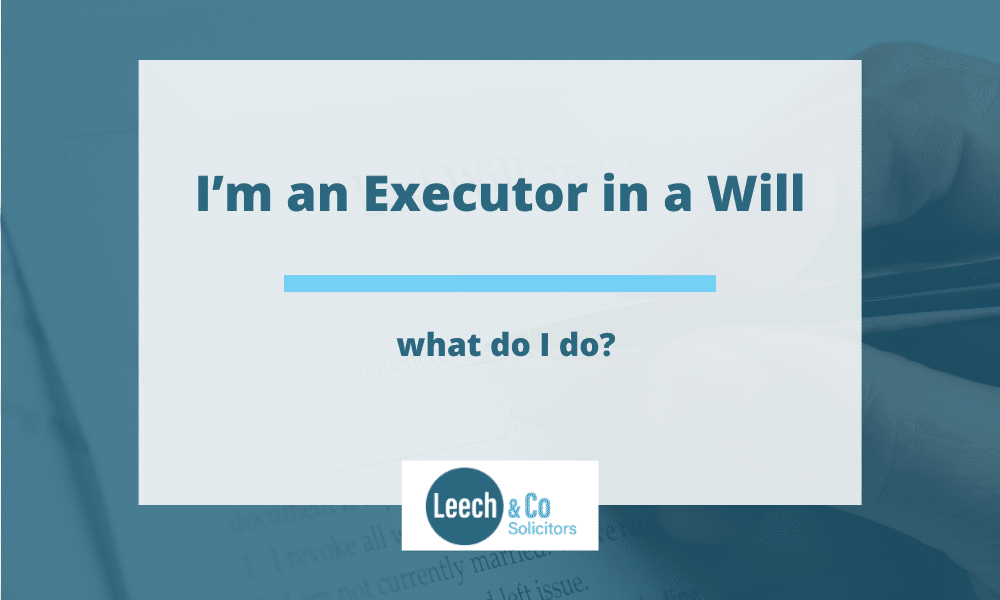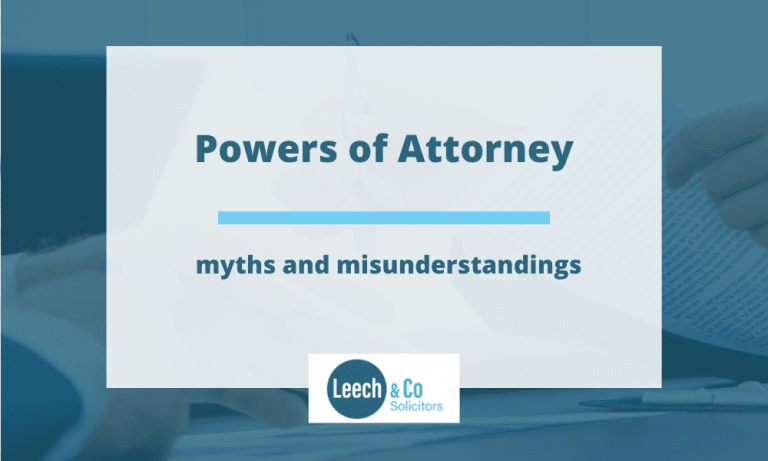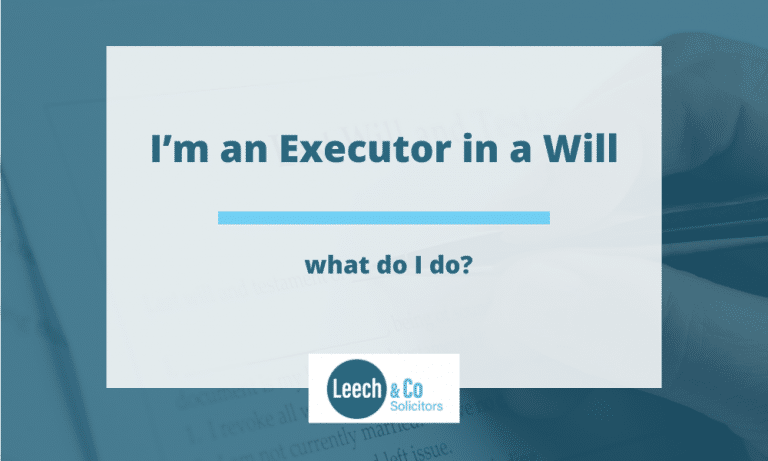Have you been appointed as an Executor in a Will or have been asked to deal with someone’s Estate where there is no Will? If so, do you need some help and guidance to get started and with what you need to do with the Estate?
In this article, we’ve tried to answer the most common questions we get asked by our clients in relation to dealing with a person’s Estate. If you’re dealing with the Estate yourself or you’ve instructed a Solicitor to deal with it for you, we have set out in the article the typical stages of dealing with an Estate and what you need to know and do as the Executor or Administrator as well as some of the most commonly asked questions.
What are the responsibilities of an Executor?
When a loved one dies, there are practical, financial and legal matters that need to be dealt with. If you have been appointed the Executor in a Will, a lot of those matters will fall to you to deal with. It will be your responsibility as the Executor of your loved one’s Will to obtain a Grant of Probate (if one is needed) and then administer the estate. If there is more than one Executor appointed in the Will you will have to work with them throughout the process.
If there is no Will and you need to administer the Estate, you will be the Administrator, not Executor, and the Estate will be dealt with according to the Rules of Intestacy (see below).
What are the stages of dealing with an Estate as an Executor or an Administrator?
The process of administering an Estate for an Executor or an Administrator can be daunting and difficult because it will have various practical, financial and legal issues to deal with and each Estate will be different with its own particular issues.
However, dealing with an Estate for an Executor or an Administrator generally has the following stages:
- Register the death, obtain the Death Certificate and notify the ‘Tell Us Once’ service so that public bodies such as DWP, HMRC etc are notified of the death. You can find more details about what to do here;
- Locate and obtain the Will – you will then need to confirm that the Will is valid and that it is the latest Will of the deceased. You will also need to understand what the will is asking you to do in relation to dealing with the Estate;
If there is no Will, the Estate will be dealt with according the rules of Intestacy. In this situation, you will not be the Executor of the Estate, you will be the Administrator of the Estate. You can find out about these rules here.
- Identify all assets and debts of the Estate by obtaining all paperwork and documents in relation to the deceased’s property, finances, possessions, outstanding Bills and debts etc;
- Obtain a valuation of the property and any possessions and contact all asset and debt holders i.e. banks, insurance companies, pension providers, utility providers, public bodies etc to confirm the value of all assets and debts;
- Prepare Estate Accounts confirming all assets and debts and how the terms of the Will are to be carried out and ensure these are agreed by all Executors or Administrators;
- Prepare and complete the application form for the Probate Registry to apply for the Grant of Probate. The Grant of Probate is the legal document that gives the Executors the legal authority to administer the Estate. (N.B. In certain circumstances, you will not need to apply for a Grant of Probate – find out more here );
If there is no Will, the Administrators of the Estate will apply for Letters of Administration rather than the Grant of Probate. However, the Letters of Administration, like the Grant of Probate, is the legal document that gives the Administrators the legal authority to administer the Estate.
- Prepare the relevant inheritance tax forms to confirm the value of the Estate and to confirm whether or not Inheritance Tax is payable. Find out more about whether Inheritance Tax is payable and how and when to pay it here ;
- When the Grant of Probate or Letters of Administration have been obtained, you will need to gather in all assets and ensure that all monies are deposited into an account;
- Pay all debts and expenses of the Estate and then distribute the remaining Estate funds to the Beneficiaries according to the terms of the Will or the rules of Intestacy. If the terms of the Will include specific requests, for example, that a specific item is to be given to a certain person, it is the Executor’s responsibility to ensure that person receives that item;
- As the Executor or Administrator, you will need to prepare the final Estate Accounts to confirm how the Estate has been administered. Therefore, throughout the process, you will need to document everything you do, obtain confirmation of payment of bills and debts and obtain receipts for any payments.
This is a very basic overview of the role of an Executor or Administrator and the stages you need to work through to deal with a person’s Estate. However, there are generally issues you will need to deal with that aren’t covered in this article, especially relating to the Estate Accounts, the application forms and Inheritance Tax forms, so if you get stuck at any stage, it’s always a good idea to obtain the professional advice and assistance of a Solicitor.
Do I have to use a Solicitor to deal with the Estate?
The simple answer is no you don’t, you can deal with the Estate yourself with the other Executors/Administrators. However, the process of dealing with an Estate can be a complex, lengthy and time-consuming one with multiple stages, forms to complete, inheritance tax issues to consider and different banks, building societies and companies to deal with. An error at any stage or with the forms can delay the process and administering the estate incorrectly could lead to your actions being legally challenged by the Beneficiaries.
A Solicitor can deal with the whole process or parts of the process for you, they can provide advice throughout and help you avoid the pitfalls, hassle and stress of dealing with the Estate on your own.
Who pays the Solicitor’s costs if I instruct them to deal with the Estate?
The legal fees for obtaining the Grant of Probate or Letters of Administration and administering the Estate are paid for from the Estate Funds and not by the Executor or Administrator. The way a Solicitor charges for dealing with the Estate and the charges themselves will vary from Solicitor to Solicitor. However, the Solicitor will discuss and agree the fees with you before starting work. The Solicitor may charge the Estate a fixed fee, an hourly rate or a percentage of the value of the Estate.
If you would like to discuss your role as the Executor or Administrator and how Leech & Co can help you to navigate the process and assist you every step of the way, please call for an informal, no obligation chat on 0161 749 9000 or contact us here.




